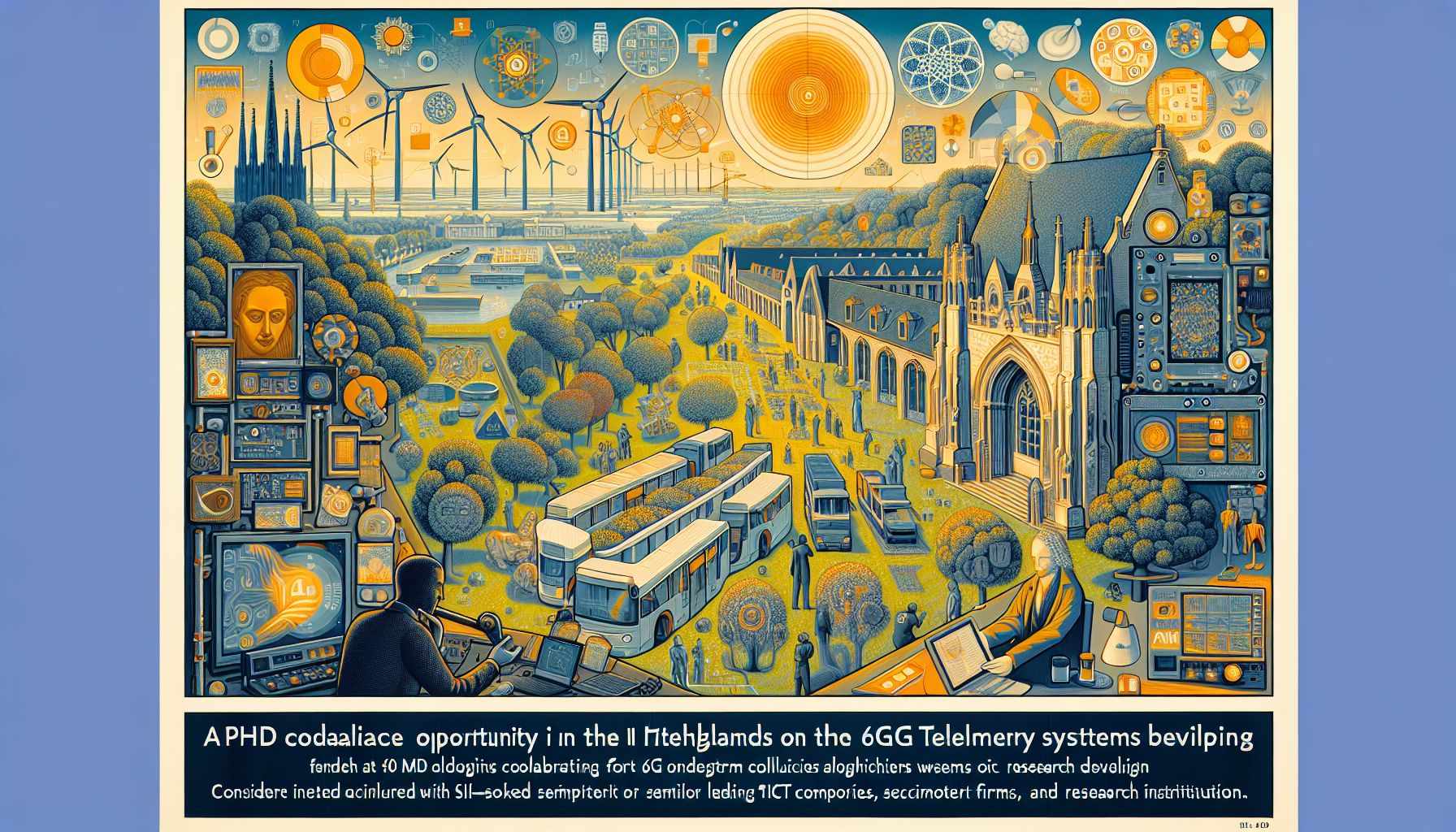PhD Opportunity in AI/ML Algorithms for 6G Telemetry Systems in the Netherlands

A unique PhD position in the Netherlands focuses on developing AI/ML algorithms for 6G telemetry systems, collaborating with 60 leading ICT companies, semiconductor firms, and research institutions.
Introduction to the 6G Research Project
This PhD opportunity is part of the Future Network Services (FNS) flagship project, which aims to advance the state-of-the-art in 6G technology. The project is a collaborative initiative involving 60 high-profile ICT companies, semiconductor firms, and research institutions. The focus is on the development of AI/ML algorithms to enhance zero-touch monitoring and telemetry analysis of 6G communication systems, leveraging advanced machine learning techniques such as Reinforcement Learning, Deep Learning, Bayesian Learning, and Federated/Split Learning.
The Role of AI/ML in 6G Telemetry Systems
The integration of AI/ML algorithms in 6G telemetry systems is pivotal for achieving high-inference accuracy with minimal overheads. These technologies will enable the seamless connection of new user devices, ranging from IoT nodes and wearables to drones and autonomous vehicles. The PhD position will involve pioneering the development of these algorithms, focusing on zero-touch monitoring, telemetry analysis, and control of 6G communication systems.
Benefits of 6G Telemetry Innovations
The advancements in 6G telemetry systems bring numerous benefits. Firstly, the AI-driven network software will facilitate more efficient and reliable communication networks, capable of handling the increasing demand for data and connectivity. Additionally, the zero-touch monitoring and telemetry analysis will reduce the need for manual interventions, leading to more robust and self-sustaining networks. This innovation is expected to revolutionize various industries by enabling real-time data analytics and decision-making processes.
Collaborative Efforts and Key Players
The research is spearheaded by TU Delft’s Faculty of Electrical Engineering, Mathematics, and Computer Science, which offers an inspiring research environment and flexible work schedules. The PhD candidates will collaborate with experts in academia and industry, testing AI/ML tools in practice within TU Delft’s programmable network. Prof. dr. ir. Fernando Kuipers, a key figure in the Dutch 6G Future Network Services project, will provide guidance and support to the doctoral candidates.
Application and Opportunities
Interested candidates must possess a Master-of-Science degree in a relevant computer science discipline and exhibit a strong background in AI/ML. The PhD position offers a competitive salary, starting at €2770 per month and increasing to €3539 in the fourth year. The application process requires a motivation letter, detailed CV, BSc and MSc degrees and transcripts, and contact information for at least three references. Multiple PhD positions are available within the FNS project, with applications evaluated as they are received.

